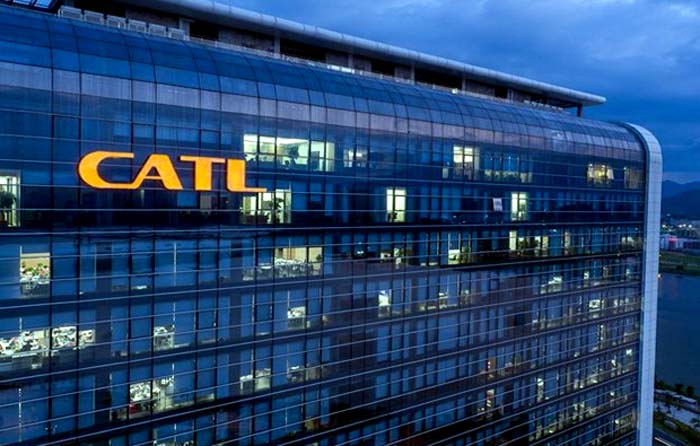Beijing
China’s CATL is making new battery materials that, compared to iron phosphate batteries, can increase energy density by 10 to 20%, according to the company’s chairman. The battery giant is doing this to stay on top of the market in the face of strong competition.
Zeng Yuqun said on Saturday at the World New Energy Car Congress in Beijing that a combination of the new M3P material technology and CATL’s next-generation battery pack technology can allow an electric vehicle to go 430 miles (700 km) on a single charge.
He noted that the new materials will reduce prices in comparison to nickel and cobalt-based batteries.
Zeng did not specify which metals will be used in M3P batteries or when mass production will begin.
CATL, whose clients include Tesla (NASDAQ:TSLA), Volkswagen (ETR:VOWG), BMW, and Ford, is the largest battery manufacturer in the world, accounting for more than one-third of the global sales of batteries for electric vehicles (EV).
It wants to stay ahead of competitors like LG Energy Solution and BYD by growing its business around the world and creating new battery technologies.
Wan Gang, Vice Chairman of China’s national advisory committee for policy formation, said that the global market for EV batteries will reach $250 billion by 2030, with a demand of 3.5 terawatt hours.
CATL stated in a separate statement on Saturday that it will provide Qilin batteries with its most advanced battery pack technology to power Geely Automobile Holdings’ (OTC:GELYF) Zeekr vehicles, which are scheduled to enter the market in early 2023.
CALT released the Qilin battery in June and said it would have a 13% higher energy density than Tesla’s 4680 cylindrical battery cells of the same size (46 millimetres in diameter and 80 millimetres in length), even though they were made of the same materials.

